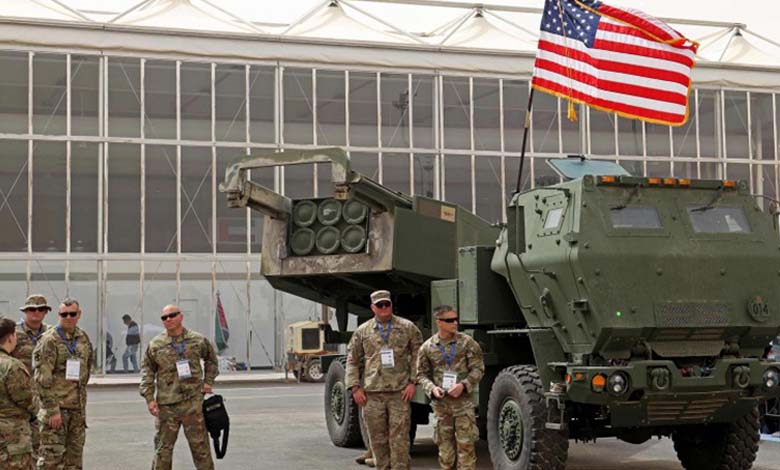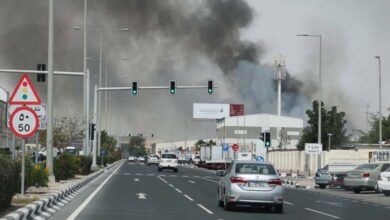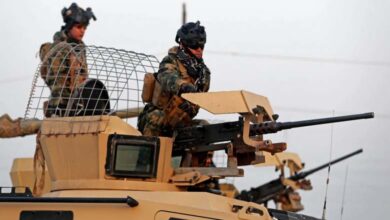America Approves Two Arms Deals for the UAE and Saudi Arabia
The deal with the UAE is worth $1.2 billion, while the deal with Saudi Arabia exceeds $1 billion.

On Friday, the United States approved arms sales worth $1.2 billion to the United Arab Emirates, mostly consisting of ammunition. They also approved arms sales to Saudi Arabia amounting to over $1 billion. These deals come amid rising tensions in the region due to the conflict between Iran, its allies, and Israel, as well as threats from some militias to target oil production sites in the Middle East if Tehran is attacked.
-
U.S. Commends UAE’s Humanitarian Support for Gaza Residents
-
“He knows what he’s saying”… Elon Musk comments on a “strong statement” by UAE Foreign Minister Sheikh Abdullah bin Zayed
The Defense Security Cooperation Agency (DSCA) said in a statement that the proposed sale of GMLRS and ATACMS missiles to Abu Dhabi “will support U.S. foreign policy and national security objectives by helping to enhance the security of a significant regional partner.”
The statement added that this “will improve the UAE’s ability to face current and future threats by modernizing its armed forces.”
This arms deal comes weeks after U.S. President Joe Biden hosted UAE President Sheikh Mohamed bin Zayed Al Nahyan at the White House. The two leaders discussed ongoing conflicts in the Middle East, as well as in Sudan.
-
Washington seeks to revive the normalization deal between Saudi Arabia and Israel
-
Emirati-American-Belgian Talks: Aid for Gaza and De-escalation
Sources revealed that the UAE would seek to revive a multi-billion-dollar deal with the United States to purchase F-35 fighter jets and armed drones if former President Donald Trump returns to the White House in the November presidential elections.
Last month, Washington designated the UAE, which hosts U.S. aircraft and a French military base, as a major defense partner for the United States.
Additionally, the United States announced arms sales to Saudi Arabia, totaling slightly more than $1 billion, according to the same statement. The deal mainly involves short-range air-to-air “Sidewinder” missiles, artillery ammunition, and anti-tank Hellfire missiles.
-
What Role Does the UAE Play in Launching an Economic Corridor Connecting India, Europe, and the Middle East?
-
Mohamed bin Zayed’s and Biden’s contacts confirm the importance of the stability of the global energy market
The State Department approved both sales as required by U.S. law and notified Congress, which must give its final approval.
Gulf states have strengthened their military cooperation with Washington in recent years, as tensions rise in the region due to the ramifications of the wars in Gaza and Lebanon and the tensions between Iran and Israel.
Gulf states find themselves caught in the middle of the conflict despite their calls for de-escalation and defusing tensions. Sources suggest that Gulf capitals have adopted a neutral stance.
-
Wagner’s Founder Returns from the Grave: He Warned of Ukrainian Encroachment and Proposed a Solution
-
How did the UAE support a pure Palestinian authority for governance in the country and denounce Netanyahu’s invitation?
Sources had confirmed that Iranian officials urged Gulf countries not to allow their territories and airspace to be used for launching an Israeli attack on their nuclear and oil facilities, following repeated threats by Israeli officials.
Both Saudi Arabia and the UAE, rich in oil, have previously been subjected to attacks and threats from armed groups, including Yemen’s Houthi rebels, who attacked Saudi oil facilities between 2019 and 2022, forcing both countries to secure arms deals to counter these threats.












